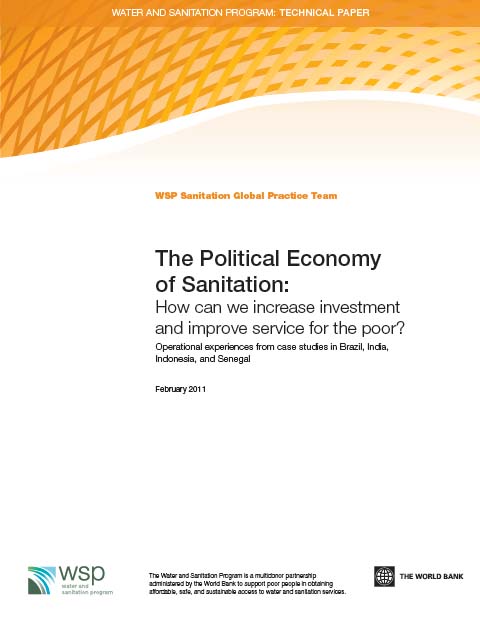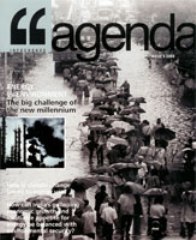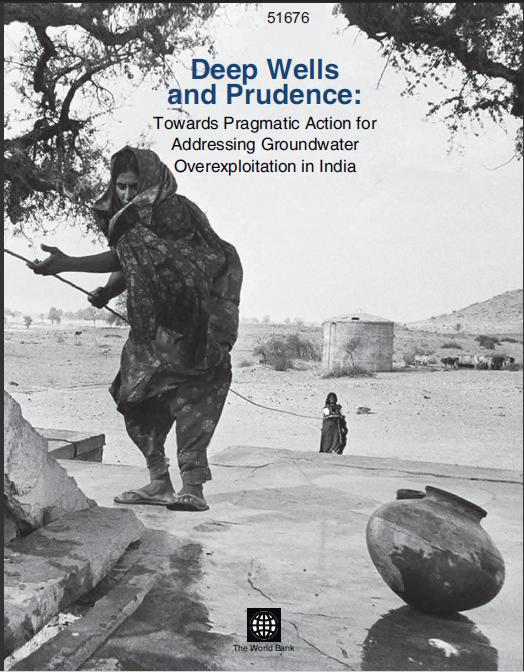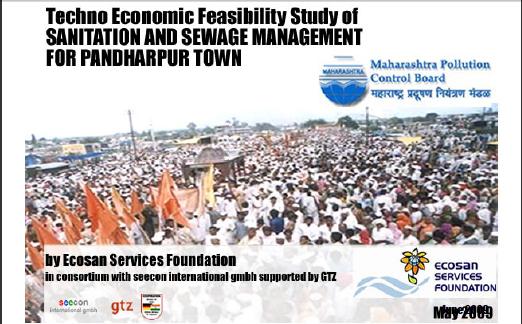/topics/demand-and-consumption
Demand and Consumption
A kalyani brought to life in Mulbagal, Karnataka: An Arghyam initiative
Posted on 27 Jul, 2011 05:58 PMGuest post by Manjunath Prasad
The political economy of sanitation - How can we increase investment and improve service for the poor? – A report by Water and Sanitation Program
Posted on 26 Jul, 2011 02:53 PM This global study attempts systematically to understand and thus help practitioners manage the political economy of pro-poor sanitation investments and service provision.
This global study attempts systematically to understand and thus help practitioners manage the political economy of pro-poor sanitation investments and service provision.
It aims to provide practical advice to multi-lateral agencies and sanitation practitioners to help them better manage stakeholder relations and effectively maneuver within the complex institutional relationships of the sanitation sector in order to enhance the design, implementation, and effectiveness of operations that provide pro-poor sanitation investments and services. The ultimate goal is to improve health and hygiene outcomes.
This study follows current approaches to political economy - interdisciplinary inquiry drawing upon social and political theory and economic principles - to understand how political actors, institutions, and economic processes influence each other. This study’s conceptual framework combines a diagnostic component with a typology of actions to help translate analytical findings into more effective support to operations and investments.
Prospects and policy challenges in the Twelfth Plan: A special article by Montek Singh Ahluwalia in EPW
Posted on 14 Jul, 2011 08:55 AMThe year 2011-12 is the last year of the Eleventh Plan and this is therefore an appropriate time to review what has been achieved with a view to identify weaknesses in the strategy that need to be corrected, and also identify new challenges that may require new initiatives. The paper is presented in the hope of spurring a broader discussion on these issues.
Minister for Water Resources addresses India business forum at the Singapore International Water Week - PIB release
Posted on 08 Jul, 2011 04:06 PMThe theme of the forum was: ‘Sustainable water solutions for a changing urban environment’.
"Climate change" - Understanding the connections with energy use, and how India's galloping economic growth and insatiable appetite for energy can be balanced with environmental security?
Posted on 18 Jun, 2011 12:52 AM
Introduction: Energy versus emissions: The big challenge of the new millennium
By Rakesh Kalshian
To maintain its economic growth rate of 8-10%, India needs all the energy it can get. But the momentum of economic growth overrides crucial environmental concerns.
Hotting up: The science and politics of climate change
By Aditi Sen
The world is hotting up. Climate systems are changing. The 1990s were the hottest decade ever, sea levels rose by 10-20 cm during the 20th century, and atmospheric carbon dioxide levels are 31% higher than in 1750.
Groundwater: From mystery to management - An article by TN Narasimhan
Posted on 22 Apr, 2011 12:07 PMGroundwater has been used for domestic and irrigation needs from time immemorial. It is a component of the hydrological cycle, vital for human sustenance. Unlike surface water, groundwater cannot be readily observed. Consequently, it was long considered to be mysterious or even occult in nature, influencing legal decisions relating to groundwater ownership and use.
Adapting to the global groundwater crisis - Its usage needs to be regulated and monitored
Posted on 22 Apr, 2011 12:03 PMThe global groundwater crisis centers on withdrawals notably exceeding short term renewable storage. The current global groundwater crisis reflects the fact that over the past century, groundwater withdrawal has grown to exceed natural renewable groundwater storage. The single most important cause is the deep well turbine pump. Groundwater depletion is very high in both the United States and India.
Deep wells and prudence - Towards pragmatic action for addressing groundwater overexploitation in India - A World Bank document (2010)
Posted on 12 Apr, 2011 01:51 AM India is the largest user of groundwater resources in the world. It is estimated that approximately 230 cubic kilometers per year is used annually, this is more than a quarter of the total world consumption from this resource.
India is the largest user of groundwater resources in the world. It is estimated that approximately 230 cubic kilometers per year is used annually, this is more than a quarter of the total world consumption from this resource.
It is in this context that this World Bank report looks at the reasons for this quantum of groundwater usage.
The report delves into socio-economic and political reasons and looks at policies which inadvertently promote so much extraction. The report also analyses various attempts to manage this resource. These attempts range from government and international agency efforts directed to grassroots mobilisations. Finally the report comes out with suggestions to deal with this crisis.
Techno-economic feasibility study of sanitation and sewage management for Pandharpur town, Maharashtra - Ecosan Services Foundation (2009)
Posted on 10 Apr, 2011 02:15 AM This study provides interventions to solving the sanitation crisis in the holy town of Pandharpur, situated on the banks of the Chandrabagha/Bhima river, in the state of Maharashtra, which receives more than 1.5 crore devotees annually. On any given day there are approximately 20,000 pilgrims in this Class B town. This vast floating population creates massive sanitation problems leading to environmental and hygiene issues. The study forms part of the Maharashtra State Pollution Control Board's 'Environmental Improvement Programme at Religious Places in Maharashtra' project.
This study provides interventions to solving the sanitation crisis in the holy town of Pandharpur, situated on the banks of the Chandrabagha/Bhima river, in the state of Maharashtra, which receives more than 1.5 crore devotees annually. On any given day there are approximately 20,000 pilgrims in this Class B town. This vast floating population creates massive sanitation problems leading to environmental and hygiene issues. The study forms part of the Maharashtra State Pollution Control Board's 'Environmental Improvement Programme at Religious Places in Maharashtra' project.
Study of ancient water storage systems on forts in Nashik district of Maharashtra - Paper presented at the National Seminar on Water and Culture (2007)
Posted on 14 Feb, 2011 05:11 AMThis paper studies the water supply, distribution, collection and storage in the forts around Nashik with the idea of testing the viability of implementing such systems in areas of similar topography. The history of forts in Maharashtra and the forts around Nashik and the water collection and distribution systems thereof are described.





